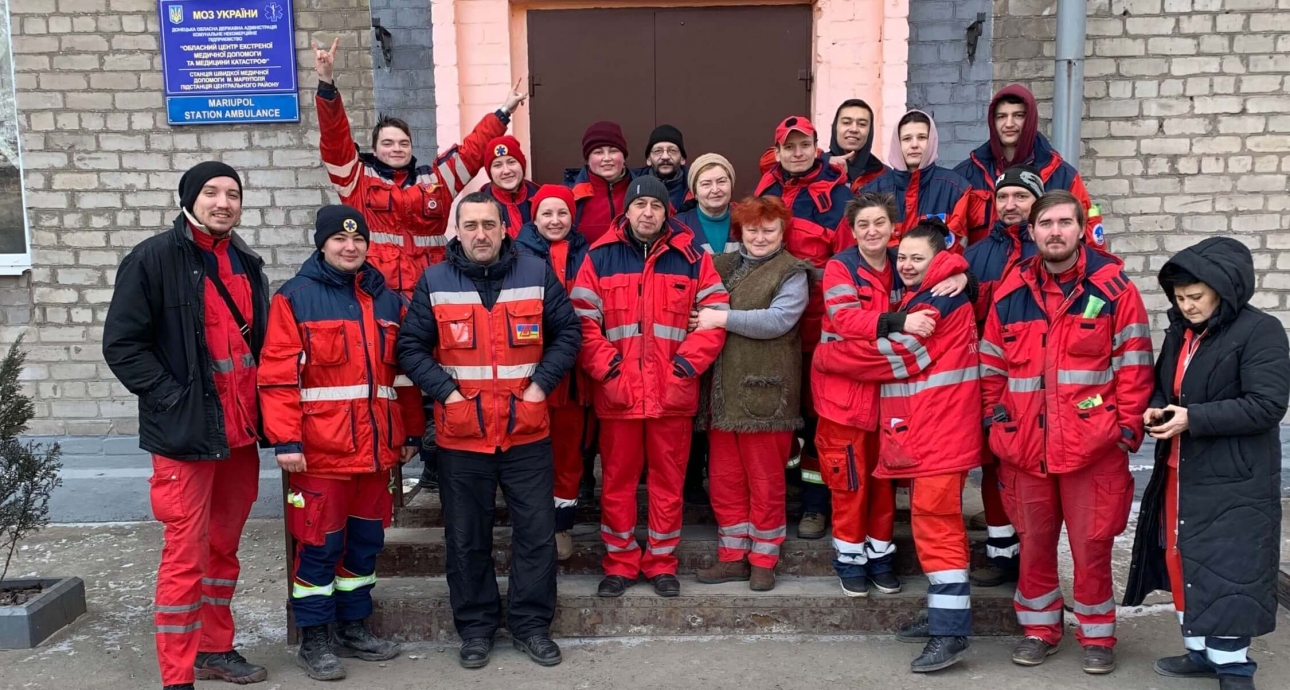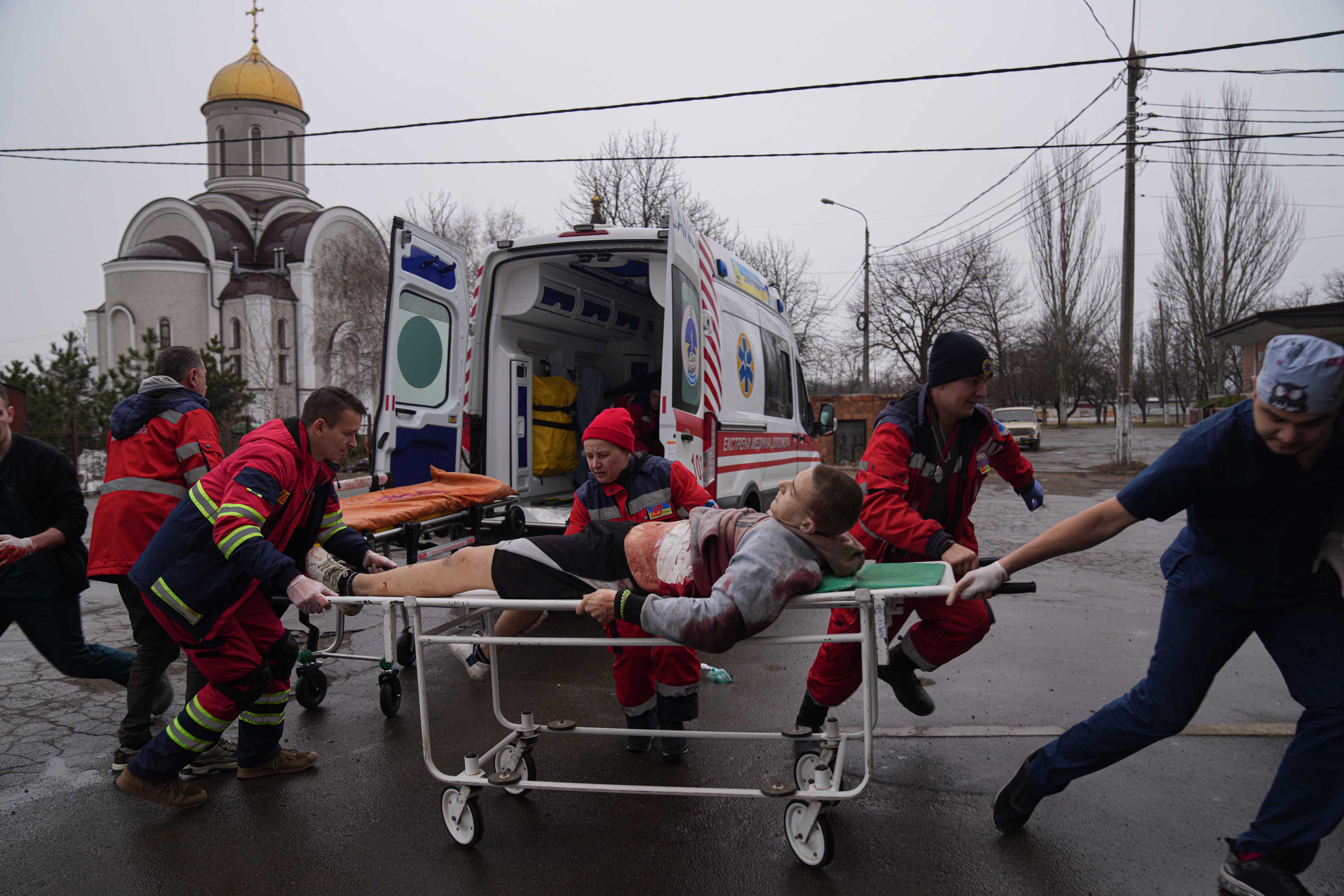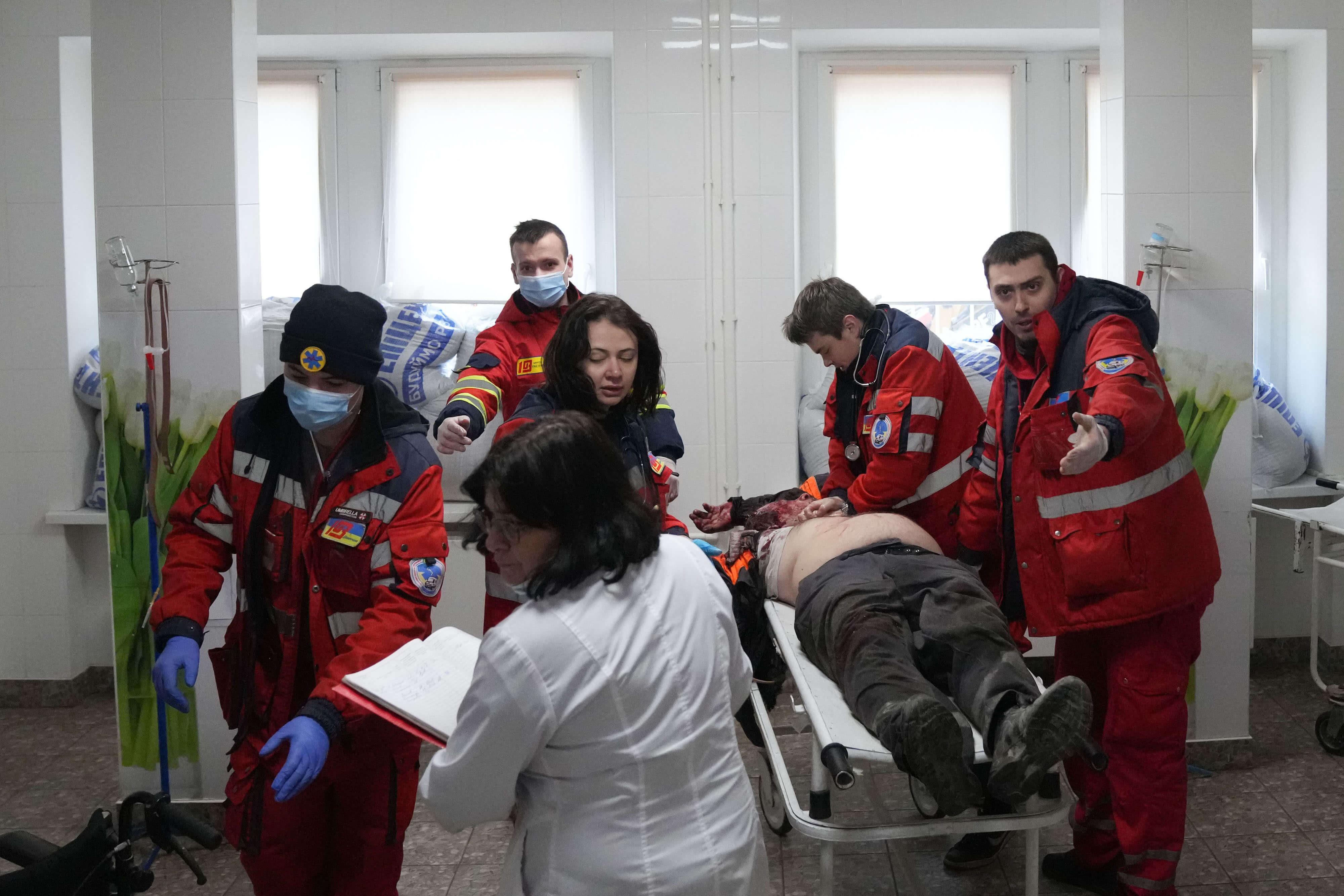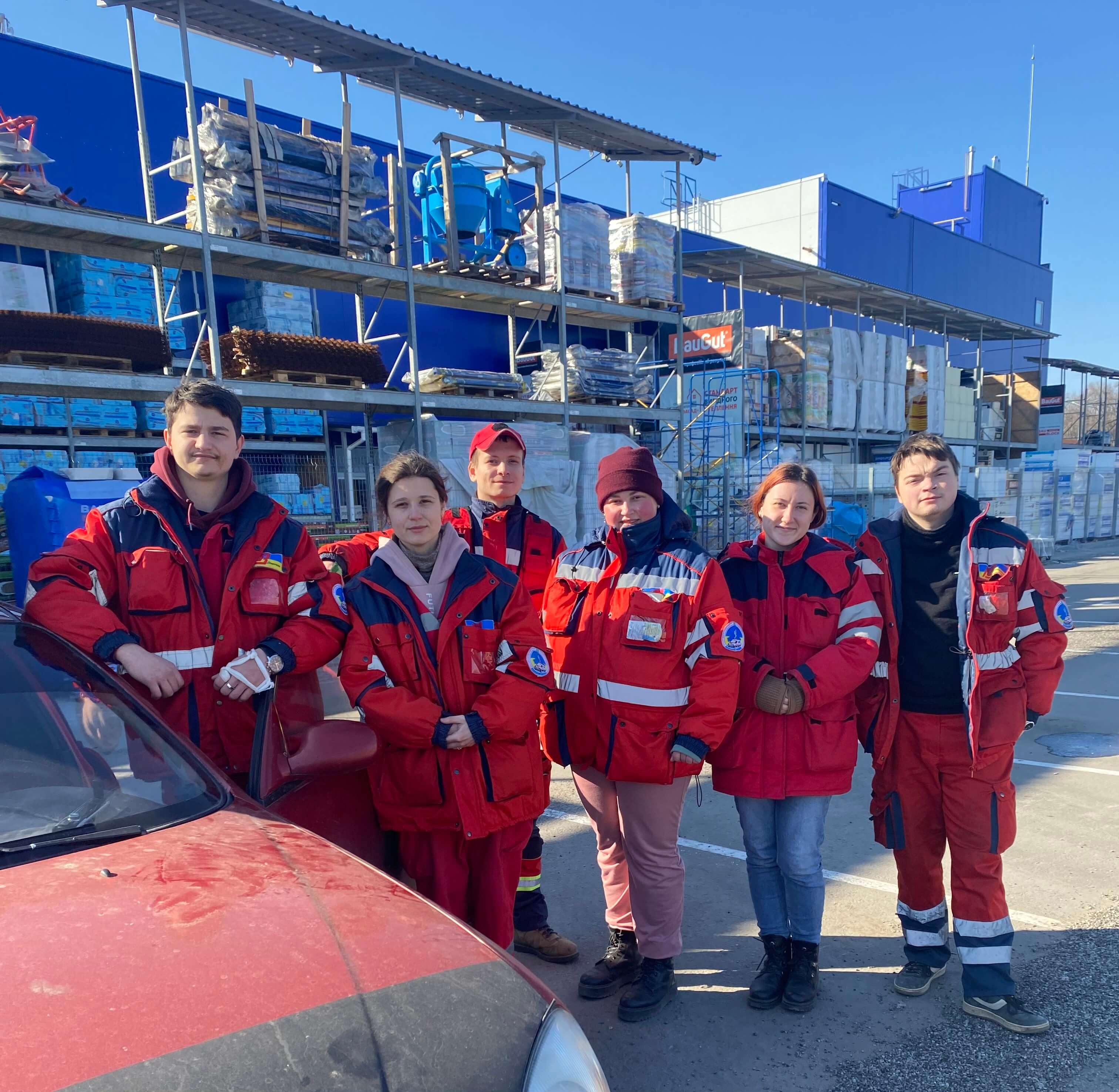
Hellish Work: 22 Days from the Life of a Mariupol Paramedic
Sergiy Chornobryvets came from Dnipropetrovsk region. After finishing the paramedical school, he moved to Mariupol. He worked in a hospital, but shortly later, he understood that he is bored and went to emergency ambulance. His work is to keep a person alive on the way to the hospital.
On February 24, Sergiy had a day off but he came to work after finding out about Russian invasion. His shift was lasting 22 days. During that time, Mariupol was mostly ruined, and the doctor himself almost died while coming to a call. He told Bird in Flight how he was informing the exhausted residents of the city about the deaths of their loved ones, how he evacuated a parturients from Mariupol maternity home and what he felt when Russian propaganda called the photos fake.
— We came to the first wartime call on February 28. The patient was a 45-years-old man with an open head injury. When a bomb landed, he was watching the TV. As a result, the man got a fragment of it in his head, but despite the injury, he even tried to speak to us. Looking at him, I understood that the situation in the city is serious and I needed a lot of tourniquets and bandages.
If a call is accompanied by the danger for life, we are not obliged to go, that is the rule. The main thing is your personal security. Therefore no one have forced us to drive around the city, it have been my choice. There was much work to do. Aside from fulfilling our duties, we were also helping doctors to carry patients, do the injections, and do the catheter procedures. We were sleeping for 4-5 hours a day, and, if we’re lucky, we could nap an hour between the calls. To take our mind off, we were playing board games, which one of the paramedics have brought to the station.
We had enough bandages and saline, but we lacked diesel fuel. Volunteer Tyra helped us with it (paramedic Yulia Payevska was captured by Russian soldiers on March 16, as of March 31, she is still there. — Ed.), who was captured later by Russians.

Photo of Sergiy Chornobryvets, taken by Yevgen Maloletka

Photo of Sergiy Chornobryvets, taken by Yevgen Maloletka
On the substation where paramedics lived, there were toilet, bathroom and kitchen. However, they weren’t really helpful because electricity, water and heating went out at the end of February. We brought the food from home when the power was gone. We were mainly eating gruel and smoked sausage, boiling soups with potato and one onion at the bonfire. From March 3, there was no Internet so we didn’t know what is going on in the country, but we weren’t discouraged. Every morning we started with the cheer about Russian warship. I believed and still believe in victory of Ukrainian Armed Forces.
I remember 7-years-old girl: in the hole from a fragment, we could see how her heart is beating.
I’ve seen a lot of bodies on pavements, roads and benches. I’ve seen separated pelvis in the middle of the street and other parts of the body. We once were coming to a call and saw a woman that was standing near the body of, as it turned out, her 25-years-old daughter. The woman hoped she was alive but she didn’t have a pulse. I don’t remember how I was choosing the words to tell her about this, my head seemed to be shut down. Maybe I was saying something meaningless.
I also remember 7-years-old girl: she was pulled from the building that was bombed. When examinating, we had to cut her clothes and in the hole from a fragment we saw how her heart was beating. Good thing is after two weeks she came to her senses and even draw the ambulance car for us.
When we were coming to a call, the shell hit the building 30 meters from us. In front of my eyes, the building was damaged, and the blast wave knocked us down through the open windows of the car. I had the ringing in my ears, I didn’t understand anything. When I came out of it, the driver said to me: “I’m 65 and you`re young so decide whether we go further or not”. I imagined the situation when my loved ones would need help and doctors would be deciding whether they go or not. We moved on.
When the maternity house was hit, we went to evacuate parturients. There were ruins; there were screams and cries everywhere. The best I remembered one woman. She was 27 and about to give birth, and she had open fractures of both legs. Everything turned out good: doctors did a cesarean section, the child wasn’t injured. However, the mother will need much time to recover with such injuries. It’s sad that at the first year of life of the child, the mother won’t be able to give enough attention.
We got acquainted with the photographer Yevgen Maloletka who was taking the pictures in Mariupol on March 1 when he was on duty in a regional hospital; that day the area of Kirov Square was bombed. At first, the journalists were only bothering. Nurses were saying it out loud while we were grumbling among ourselves. However, later we got used to them and understood that everybody is doing their job. It’s good that Maloletka’s photos make a mark on history; it’s bad that this mark is sad. Later when I read the comments that photos are fake, I couldn’t believe that people can seriously write this.

On March 17, we moved from the substation and from the 300 meters saw “green men”. They were very nervous: fired in the sky, laid everybody on the floor. I was afraid of a thought that if they shoot in the sky, they can turn the guns on us. After checking our documents, they advised us not to go to the calls.
After that, several of my colleagues and I decided to leave the city. We couldn’t do our duties: the roads were either cut off, or destroyed, the fuel almost ran out. Staying at the substation until the shell lands there is useless.
We knew that we can fail arriving but decided to take a risk. On the roadblocks, we were forced to undress almost naked to check if we have pro-Ukrainian tattoos. We erased the phones in advance: removed unnecessary photos and deleted messengers. In a day, we arrived to Zaporizhzhia through Berdiansk. We left on March 18 – my birthday.
The day before the departure, I decided to go home for clothes. The doors of my apartment were open, marauders took everything, even the copies of documents – maybe they were used for inflammation. From my medical library that I’ve been collecting for 5 years, there is left only the book of cardiology. I took it to Zaporizhzhia.
In the early days in Zaporizhzhia, I couldn’t get rid of the feeling of constant danger: it seemed to me that something was going to “rush in”. Also seeing relatively peaceful city, I didn’t believe that all 22 days that I spent on my shift, the life was going on. To all these worries added the feeling of fault. Some people call me a hero because I helped people under attacks. But what the hero am I if I left?
Фото: Сергій Чорнобривець (четвертий справа у другому ряду) та його колеги у Запоріжжі
New and best




